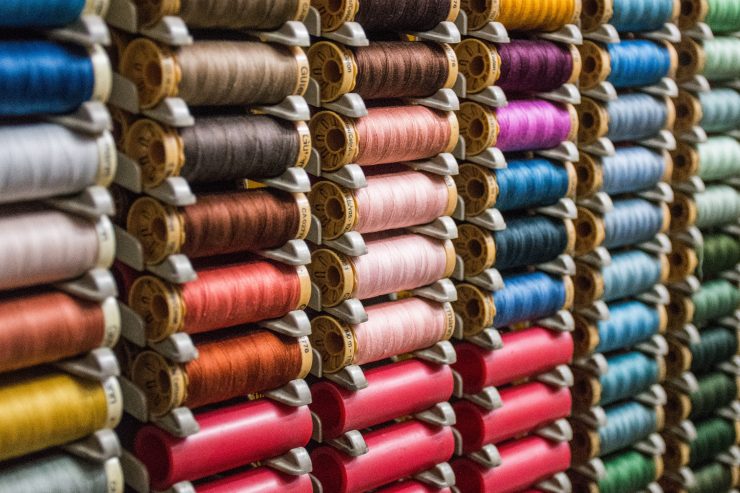‘Citius, Altius, Fortius’: This famous Olympic motto could very well represent the textile industry’s growth in France.
According to Mr. Yves Dubief, president of the Union of Textile Industries, textile businesses have accelerated their modernisation.
“Textile is part of New Industrial France.”
It was on this topic that Mr Christian Cambier, fervent founder of the Théophile Legrand Prize created in 2009 in Fourmies, France, requested the Textile Industry Union’s support.
Innovation is one of the strategic priorities of the textile sector and as such, it has accepted to support this foundation protected today by the Institute of France.
It is against this background that the ‘Textile Cap sur le Futur’ II event took place on Thursday 17th March, 2016 at the Capital 8 conference centre in the 8th district of Paris.
The event, a day to celebrate and reward textile innovation supporting the industry and humanity, was hosted by Frédéric Ferrer, journalist and professor at ESCP Europe.
With candidates from all over the world, the “Théophile Legrand Prize has become a world reference in just seven years” said Mr Christian Cambier.
The Prize for Textile Innovation for People was awarded to Jana Horakova, a 29 year-old Czech designer. She designed a biopolymer textile fibre of small diameter, suitable for double vascular transplants. Permeability, easy manoeuvring, sterilisation and simple storage are important assets for the development and commercialisation of this innovation.
 The Prize for Textile Innovation for the Industry was awarded to Adil Mountasir. The 38 year-old German developed a new industrial procedure using flexible weaving for integrated fabrication of pre-formed fabric in 3D and the creation of a fibre reinforced with complex geometries.
The Prize for Textile Innovation for the Industry was awarded to Adil Mountasir. The 38 year-old German developed a new industrial procedure using flexible weaving for integrated fabrication of pre-formed fabric in 3D and the creation of a fibre reinforced with complex geometries.
This innovation satisfied a strong demand to reduce material used in the making of cars and planes.
We hope that they will have the same success as Gauthier Bedek, 2010 laureate, who was present to speak about his genius creation: a self-cooling textile, created from sugar and commercialised by Damart.
The prize-giving ceremony ended with a related speech by economist, Robin Rivaton, on ‘the digi-robotic revolution’.
According to him; “The incredible progress in the human-machine construction domain gives way to a rise in innovation.”
First creation: The Robot Atlas by Boston Dynamics, a Google subsidiary. This human-like machine is able to grasp objects, walk, run and evolve.
A second, more advanced Google creation: the AlphaGo machine. The combination of these two creations represents this ‘digi-robotic revolution’.
With robotic technology and digital technology going hand in hand, the “ability to make machines more and more intelligent and capable to speak between themselves” was born. The economist also explains that substantial
The revolution has thus begun. What if France were to become the California of the future?
Over the course of the years, the Théophile Legrand Prize has become an international reference.
From intelligent cloth to light-up fabrics, from ‘self-cleaning and anti-bacterial’ textile to clothing that ‘auto-detects problems’, from self-cooling fabrics to the creation of a new method of wool colouring. The first 6 editions of the Theophile Legrand Prize have given prominence to procedures that are often revolutionary in several domains.
Thank you for allowing us to discover this textile-innovative side of France!
What’s next for 2017?

